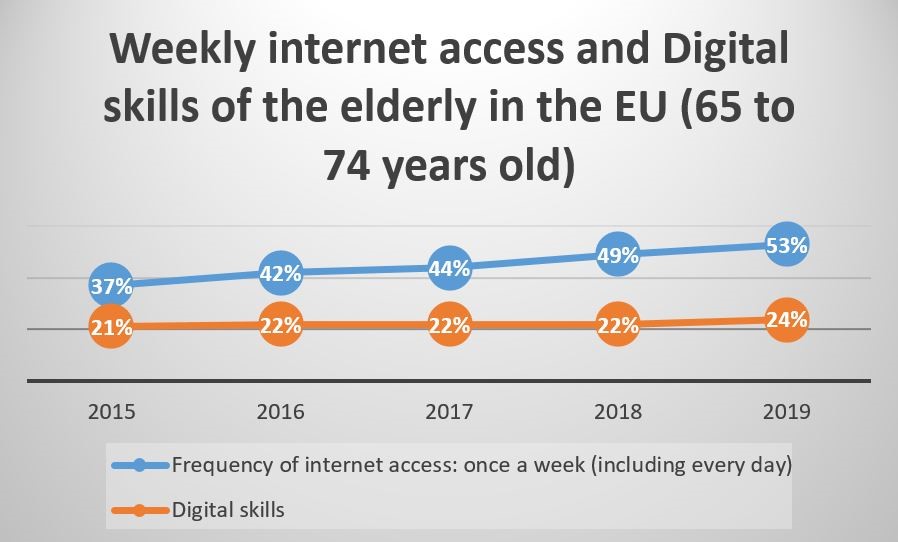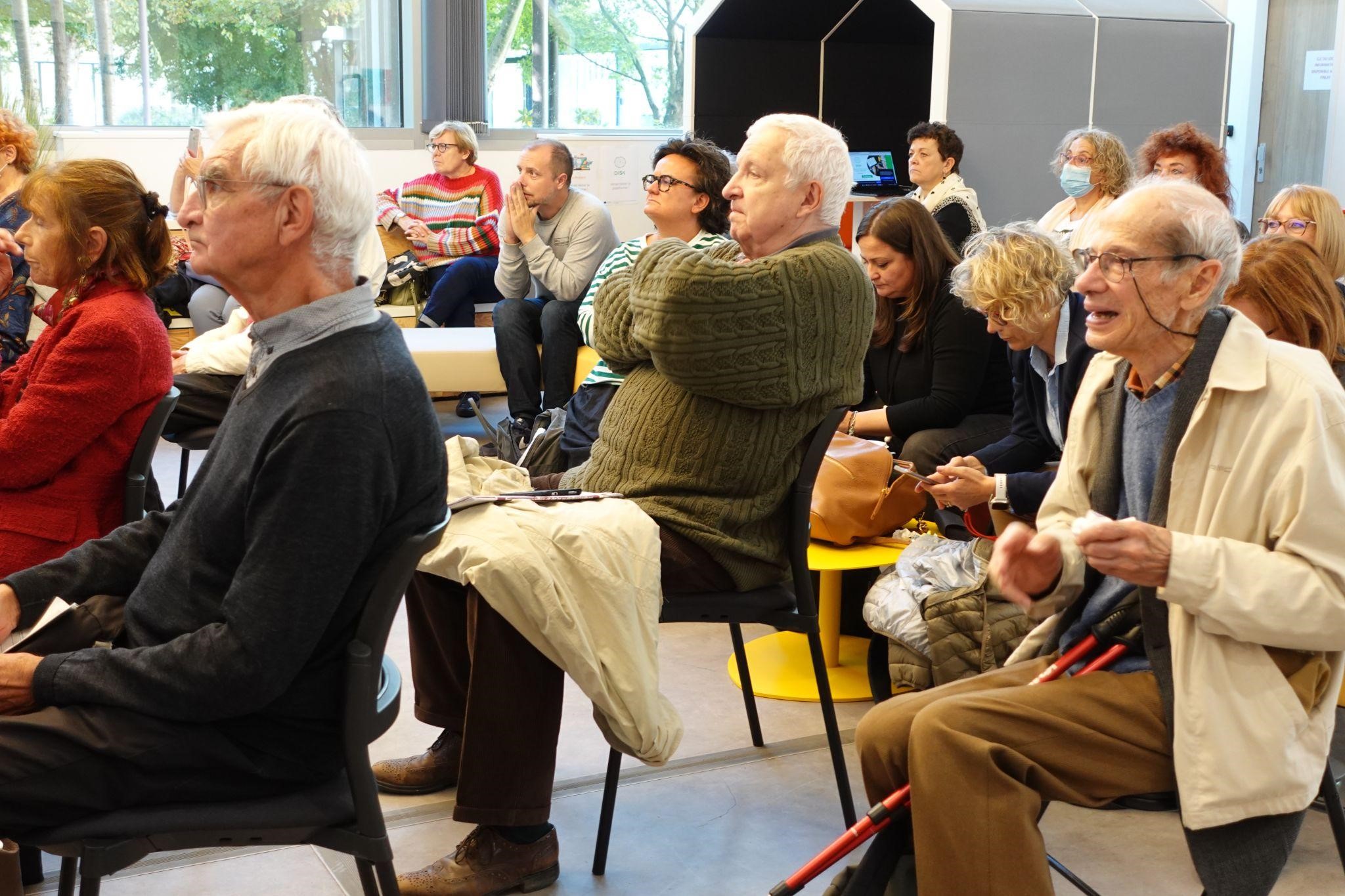How can the elderly feel confident and safe during the internet use A complete package of resources
The digital transformation of public welfare and private services which reflects a broad range of trends and developments is becoming a key objective across the EU member states. While digital competence is considered one of the key competences for lifelong learning as the use of digital technologies is constantly rising, the elderly population is less familiar with ICT. Consumer and personal data protection of the elderly during their online activity is a general concern irrespective of nationality or place of residence.
There is a strong need to educate EU citizens and the elderly on accessing and engaging in online activities by experiencing a high level of consumer and personal data protection. Therefore, the e-Protect project aims to address the consumer and data protection needs during internet use of elderly people through their familiarization with the use of ICT tools, by providing them tailored training opportunities that will meet these challenges. Below there are some essential resources for enhancing elderly’s competences for safe internet use.
The Competency Scale for measuring elder people’s efficacy on consumer and data protection skills
The e-Protect Competency Scale consists of a powerful and innovative tool to measure elder people’s (65+) efficacy on consumer and data protection skills and competences. The scale is also a useful tool for professionals working with them, as it allows a clear view of the training needs in terms of consumer and data protection competences. The scale include 10 key competence areas divided in 3 main thematic areas: Consumer behavior and protection, Online payments and transactions and Data protection and privacy. According to the four hierarchical levels of competence (basic, intermediate, advanced, expert) as adjusted to the target group, these competence areas unfold 40 specific and interconnected competences. The Competency Scale sounds like a complicated tool but in reality is not. Users can access the scale online in the e-Protect project’s website and navigate to understand the simplicity and levelled structure of the scale.
The e-Protect Curricula for Internet Safety with specifications on the learning outcomes and the utility of each competence.
The e-Protect Curricula maps the Internet Safety competences in regard to consumer and personal data protection, providing in detail the description of the learning outcomes in terms of knowledge and skills, describing each competence and its value for elderly people. The e-protect curricula fully corresponds to the result of IO1 i.e., the Competency Scale. The e-Protect Curricula can be used by adult educators to create tailored training on the consumer and personal data protection competences, or directly by the elderly to assess and develop their competence. It will allow elderly people (65+) to practice their digital wellbeing, become empowered and develop their self-confidence, thus maximizing the control over their online activities and independence. The e-protect curricula consist of 10 units (which are grouped into 3 categories). These units are basically the 10 competence areas of the Competency Scale.
The e-Protect Train-the-Trainer Toolkit for Internet Safety
The e-Protect Train-the-Trainer Toolkit supports the capacity building for adult trainers for the implementation of the innovative training programme for the elderly. As training programmes are more likely to contribute to the desired outcomes when they are current, well-organized, understandable, and accurate, the Toolkit ensures an informed resource that derives from educational, cognitive, and technological research. The Toolkit can also function as a guide for the implementation of the innovative e-Protect training programme for the elderly. In particular, it provides knowledge and understanding of the e-Protect Competency Scale, the e-Protect Curricula, and instructions on how to prepare the training programme in practice.
The e-Protect e-Learning platform
The e-learning platform is a one-stop-shop providing instant access to the full suite of digital learning resources developed in this project. The rich informational material is freely available online for everyone interested in learning more about internet safety for the elderly.
Read the full article here.



















